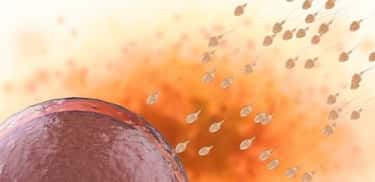Causes of infertility in men

Over ninety percent of male infertility cases are caused by low sperm counts, poor sperm quality, or the combination of the two. Sometimes, male infertility can be as a result of genetic defects which are passed down to children. The rest cases of male infertility can be as a result of a collection of conditions which includes anatomical issues and hormonal imbalances.
Sperm Abnormalities
Sperm abnormalities are a serious cause of male infertility. Example of male abnormalities that results to infertility are:
• Low sperm count
• Poor sperm motility or movement
• Abnormal sperm morphology or shape
Diagnosis
The diagnosis includes medical history and physical exam, together with particular tests for male infertility which includes:
• Semen analysis to evaluate the quantity and quality of sperm
• Blood tests to estimate the levels of hormone
• Imaging tests to check if there are any structural issues.
• Genetic testing to figure out sperm DNA fragmentation, chromosomal defects, or genetic disorders.
Causes of Sperm Abnormalities
A few causes of sperm abnormalities include the congenital birth defects, sickness, exposure to chemical and lifestyle habits. In a lot of instances, the causes of sperm abnormalities are unidentified.
Sperm abnormalities are grouped according to the way they affect sperm count, sperm movement, or sperm shape. Examples of sperm abnormalitiesd that can result to male infertility are:
Low Sperm Count (Oligospermia)
A low sperm count is a sperm count of less than 20 million per milliliter.
Azoospermia
Azoospermia is when there is a complete nonexistence of sperm cells in an ejaculation. Partial barrier somewhere in the elongated passages through which sperm pass can decrease sperm counts. Sperm count differs broadly over time. It is possible for a man to have temporary low counts. One test that shows a low sperm count may not be the true situation of the man’s result.
Poor Sperm Motility (Asthenospermia)
Sperm motility is the ability of the sperm to move. If the movement of the sperm is slow or not in a straight line, it would be difficult for the sperm to invade the cervical mucus or penetrate the stiff outer shell of the egg. If 60 percent of the sperm or more have normal motility, the sperm is said to have average quality. If the percentage of the sperm that have normal motility is less than 40, it is regarded as an abnormal condition. Slow moving sperm may be due to genetic or other defects that make it render them unable to fertilize the egg. Poor sperm motility may be caused by DNA fragmentation and may boost the risk of further transfer of the genetic disorder to offspring.
Abnormal Sperm Morphology (Teratospermia)
Morphology means the shape and structure. A sperm that has abnormal shape sperm cannot fertilize an egg. Roughly sixty percent of the sperm should have normal size and shape to be able to effectively result in successful fertilization. The right structure of a sperm is an oval head and long tail.
Retrograde Ejaculation
Retrograde ejaculation happens when the muscles of the bladder wall do not work perfectly during orgasm and sperm are forced back into the bladder rather than forward out of the urethra. Sperm quality is frequently messed up.
Retrograde ejaculation can be caused by a lot of factors including the following:
• Surgery in the lower part of the bladder or prostate. This is the most common cause of retrograde ejaculation.
• Diseases conditions like diabetes and multiple sclerosis
• Spinal cord injury or surgery
• Drugs like alpha blockers used for inflamed prostate glands, tranquilizers, specific antipsychotics, or blood pressure medicines may as well result to temporary retrograde ejaculation.
• Aging
Structural Abnormalities
Any structural abnormalities that injure or obstruct the testes, tubes, or other reproductive structures can cause infertility in men. Examples include the following:
Cryptorchidism.
Cryptorchidism commonly occurs in newborn infants in which the testicles did not successfully move down from the abdomen into the scrotum.
Hypospadias
Hypospadias is a birth defect that occurs when the urinary opening is on the bottom of the penis. It can prevent sperm from reaching the cervix if not surgically put right.
Obstruction in the Tubes that carry Sperm
A number of men are born with a obstruction or other issues in the epididymis or ejaculatory ducts, that eventually affect fertility. A few men do not have the vas deferens, the tube that transports sperm from the testicles out via the penis.
Hormonal Deficiencies
Hypogonadism is the common name for a heavy deficiency of gonadotropin-releasing hormone (GnRH), the principal hormone that signals the procedure that results to the release of testosterone and other crucial reproductive hormones. Low levels of testosterone may cause faulty sperm production. Hypogonadism is rare and mainly obtained during the birth of a child. It is normally caused by rare genetic diseases that affect the pituitary gland.
Genetic Disorders
Examples of genetic disorders that can cause male infertility are:
• Cystic fibrosis
• Polycystic kidney disease
• Klinefelter syndrome which is characterized by two X and one Y chromosomes which results to low testosterone levels and abnormalities of the seminiferous tubules
• Kartagener syndrome is an uncommon disorder that results to faulty sperm motility.